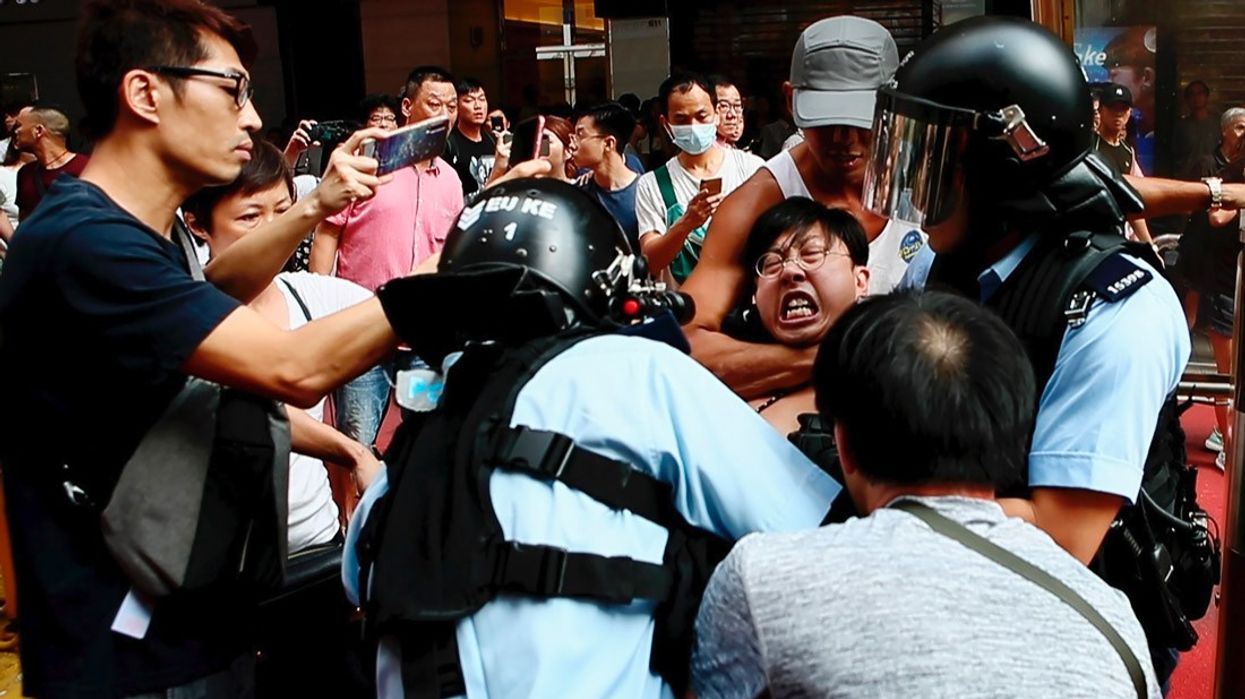China Is Censoring the Academy Awards
This should be China's time to shine—but instead, they are burying the Academy Awards.

We often think of the Academy Awards as just an American affair, but across the world, people tune in. They want to see if their favorite movies win, but they also want to see if creatives from their own country can take home the crown.
Right now, people in China should be rejoicing. There is a Mandarin-language film nominated for Best International Feature, and Chloé Zhao, a Chinese-born woman, is probably the favorite to walk away with the Best Director Academy Award.
It's a huge deal to have a movie up for International Feature. The drama Better Days was adapted from the popular Chinese YA novel In His Youth, In Her Beauty (少年的你,如此美丽) by author Jiu Yuexi. It tells a story of a bullied high school girl and a teenage street thug, and how both of their lives were changed by each other. The movie was directed by Derek Tsang.
Still, no one in the Chinese government is happy.
As we reported, the Hong Kong TV network TVB will not be showing the awards, but mainland China will not be streaming the event either. They're using a rather famous law called the “national security law,” which restricts free speech, to say why they won't broadcast the awards.
In the past, China has broadcast a version of the awards on state-run TV the morning after they aired, but this year they have no public plans to do so.
So how did we get here?
The Communist Party of China is highly sensitive to the discussion and handling of the protests in Hong Kong. For those who don't know, Hong Kong is trying to win freedoms they feel they were promised.
A short documentary nominated for an Oscar called Do Not Split covered the 2019 Hong Kong democracy protests. The movie was directed by Norwegian filmmaker Anders Hammer. According to the Washington Post, It focused on such protesters as Joey Siu, a North Carolina-born and Hong Kong-raised activist. In the film, you see the siege of the Chinese University of Hong Kong and other huge moments during the protests.
China was not very happy with this content.
Chinese regulators seem worried about attention from all over the world. And since the awards are broadcast everywhere else, and speakers can say anything they want when they get to the podium, and they can't control who wins or what clips are shown, the government was uneasy.
This, coupled with the fact that Zhao once made comments critical of China during an interview, apparently worries them.
“I think if she says something about China it will be interesting, and if she doesn’t that will be interesting for an entirely different reason,” said Aynne Kokas, a University of Virginia professor and author of Hollywood Made In China, about their relationship. “There’s a financial imperative for her not to tick off the Chinese government. But maybe she sees a moral imperative to stand her ground.” Normally, Hollywood would not care, but Hollywood needs China. Their box office is only second to the United States, and in 2019 generated about $9 billion in box office sales. But that box office is changing. With more movies being made in China, the US films that travel have not done well there. Disney's Mulan actually bombed there.
Hollywood is now a global industry. Studios are embracing their expanding audience and world. China is a big part of that world. And studios like Disney, who have a good relationship with them, will want to keep that door open to make sure their films make the most money. Zhao's next movie, Eternals, is a huge Marvel movie under the Disney banner.
It would be easy to see why Disney would not want her to say anything if she won. But how much can studios restrict the free speech of people accepting awards? And what about the indie filmmakers who made the short doc? No one can stop them from saying anything, either. And they don't have a conglomerate hanging over their shoulder looking into it as well.
Time will tell what happens, but as of right now, China won't show the Academy Awards. Let us know what you think in the comments.














